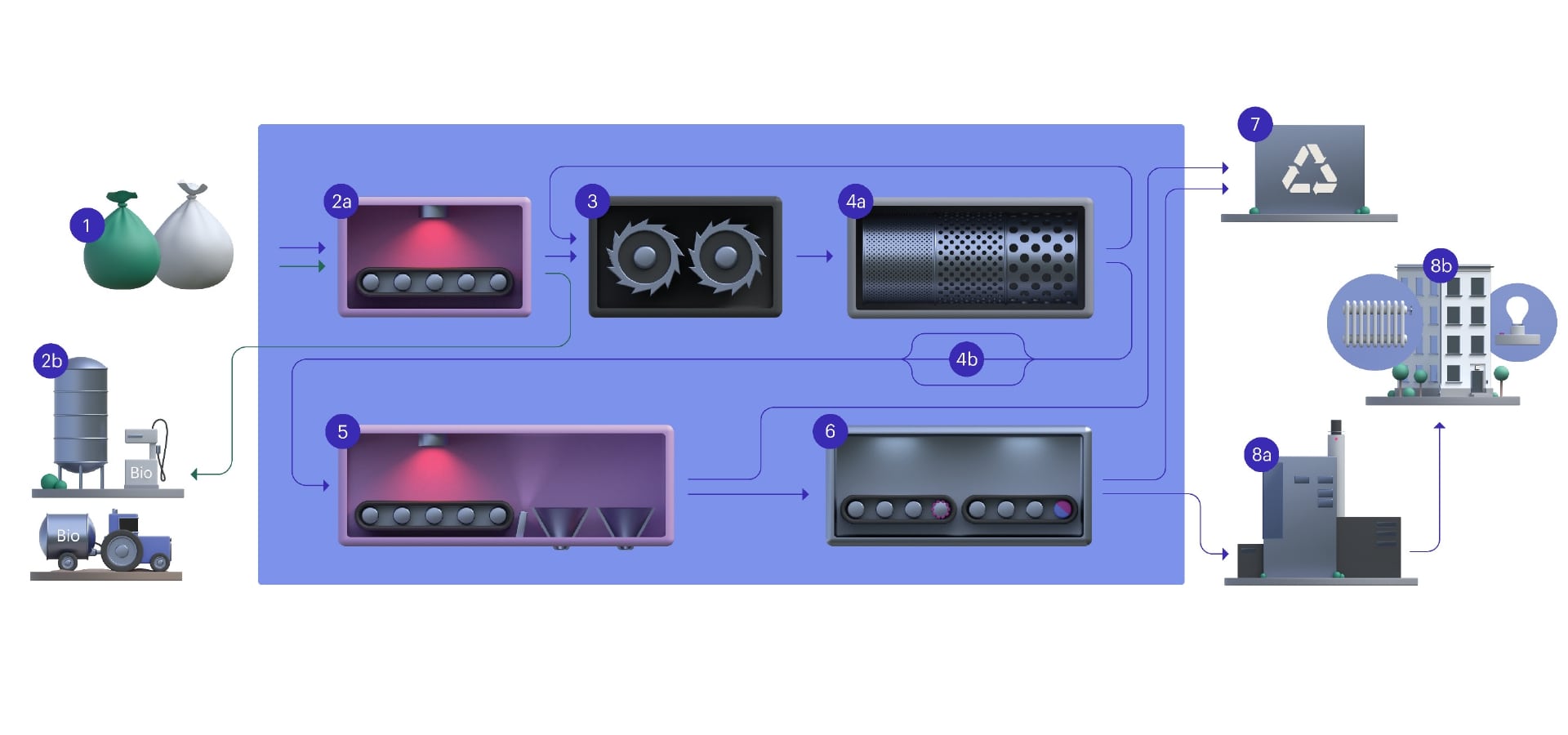Thessaloniki gets ready for its metro launch in November
The underground rapid transit lines have been under construction for almost two decades due to various project delays
 TheMayor.EU logo
TheMayor.EU logo In fact, the more precise term is post-sorting, and it cuts down CO2 emissions by 75%
The post-sorting facility located in Brista, near Stockholm (Sweden), counts on a pioneering technology to ensure that more plastic gets recycled rather than incinerated. The name of that technology – near-infrared (NIT), an application tech that has been used more widely in the field of medicine and diagnostics.
The post-sorting plant is the first of its kind in Sweden. It has been operating there since 2021 helping to reduce CO2 emissions from plastic and metal incineration by 75%.
The facility is a collaborative project between Stockholm Exergi (the capital’s energy provider) and Sörab and is part-financed by Klimatklivet (Sweden’s national green financing scheme).
A total of 11,000 tonnes of plastic and 2,500 tonnes of metal are sorted out there each year. This means that the directives from the EU on recycling are met, offering Stockholm a sustainable solution in terms of prolonging the lifecycle of materials.
The near-infrared sorting technique means that the machine identifies different types of plastic and sorts the ones that can be recycled, such as plastic packaging.
There are in fact two separate steps where NIT is used in the post-sorting process, once to separate organic waste from the rest and then again to separate plastic from metal.

A diagram showing the post-sorting process, Source: Stockholm Exergi

The underground rapid transit lines have been under construction for almost two decades due to various project delays

Now you can get your wine in Talence by paying directly in Bitcoin

That’s because the state has to spend money on updating the railway infrastructure rather than subsidizing the cost of the popular pass

Rethinking renewable energy sources for the urban landscape

The examples, compiled by Beyond Fossil Fuels, can inform and inspire communities and entrepreneurs that still feel trepidation at the prospect of energy transition

Now you can get your wine in Talence by paying directly in Bitcoin

The 10th European Conference on Sustainable Cities and Towns (ESCT) sets the stage for stronger cooperation between the EU, national and local level to fast track Europe's transition to climate neutrality.

At least, that’s the promise made by the mayor of Paris, Anne Hidalgo

The underground rapid transit lines have been under construction for almost two decades due to various project delays

At least, that’s the promise made by the mayor of Paris, Anne Hidalgo

Hostal de Pinós is located in the geographical centre of the autonomous region

Despite its church-y name, the district has long been known as the hangout spot for the artsy crowds

Urban dwellers across the EU are having a say in making their surroundings friendlier to people and the environment.

Forests in the EU can help green the European construction industry and bolster a continent-wide push for architectural improvements.

Apply by 10 November and do your part for the transformation of European public spaces

An interview with the Mayor of a Polish city that seeks to reinvent itself

An interview with the newly elected ICLEI President and Mayor of Malmö

A conversation with the Mayor of Lisbon about the spirit and dimensions of innovation present in the Portuguese capital














